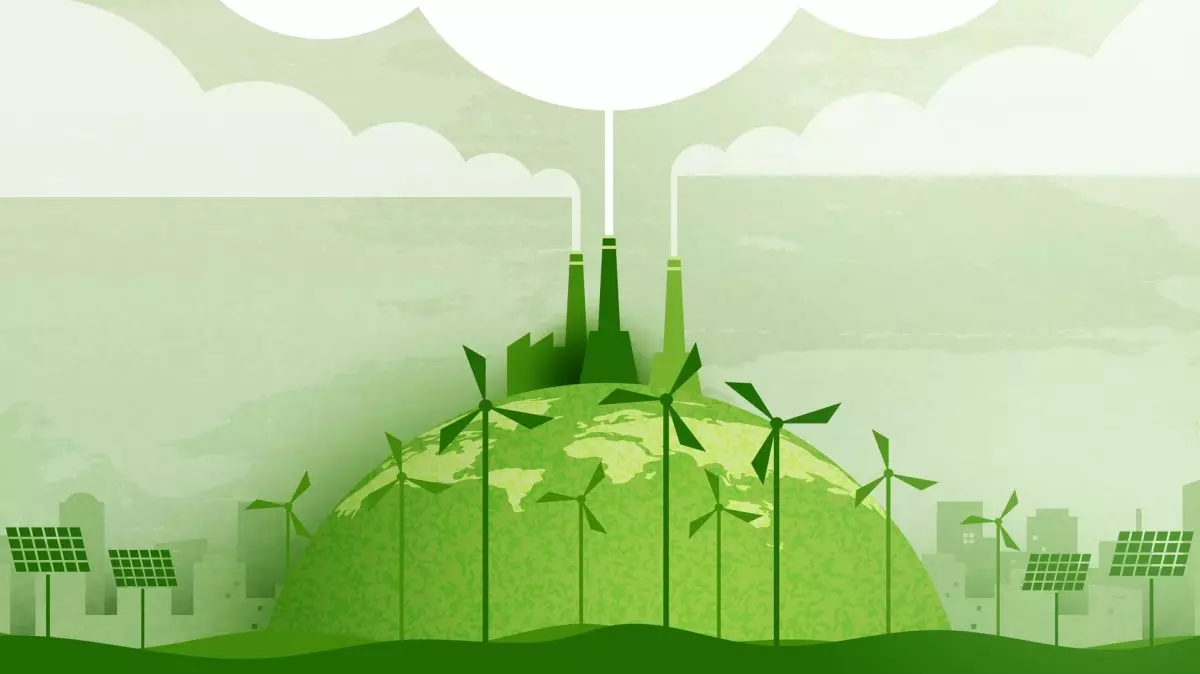In a significant mobilization effort, over 100 organizations have issued an open letter to the artificial intelligence (AI) industry and regulatory bodies, highlighting the pressing need to address the environmental repercussions of AI technologies. This letter coincides with a major AI conference set to take place in Paris, attracting influential figures from various sectors, including business leaders and policymakers. Notable organizations among the signatories include Amnesty International and the AI Now Institute, which underscore the growing concern that AI systems significantly contribute to rising emissions and exacerbate reliance on non-renewable energy sources.
The signatories express alarm about the ongoing lack of strategic measures to combat these adverse effects, particularly as investments in AI continue to escalate. The assertion made in the letter is forthright: “AI can never be a ‘climate solution’ if it runs on fossil fuels.” Therefore, they insist that AI systems should align with eco-friendly principles that respect our planet’s boundaries. The implications of this call are profound – it underscores a fundamental shift that is necessary for the sustainable advancement of technology, one that champions environmental responsibility.
The letter poses urgent questions regarding the infrastructure that supports AI development. It calls for an immediate transition to fossil fuel-free energy sources for all AI-related infrastructure, including vast data centers that consume enormous amounts of electricity. Projections suggest that global electricity usage for data centers could double, leading to an untenable strain on electric grids that might force utilities to revert to coal and other environmentally harmful energy resources.
The International Energy Agency has contributed alarming data, indicating that the energy demand brought on by AI is escalating at an unprecedented pace. These challenges signal an urgent need for transformative changes at both industry and government levels, aiming for a sustainable energy framework that can accommodate the increasing needs of AI without compromising our environmental commitments.
Equally concerning is the need for vast amounts of water for cooling data centers, a necessity often overlooked in discussions surrounding AI growth. The practicalities of AI operations are not just about electricity consumption; they also hinge on the availability of critical natural resources. For instance, a significant estimate suggests that if merely 10% of the U.S. population utilized AI tools like ChatGPT to draft weekly emails, the water required could surpass 435 million liters.
As awareness grows around these issues, the advocates emphasize the necessity for transparency regarding the ecological impacts of AI technologies. They argue for rigorous assessments through every phase of AI’s lifecycle—production, deployment, and beyond. Governments and technology firms must proactively manage resource consumption to safeguard water and land, ensuring that AI development is not a compounding factor of ecological degradation.
The demands articulated by the signatories identify a critical social justice aspect of AI technologies. The letter elucidates that the communities least capable of coping with climate change—the most vulnerable populations worldwide—are disproportionately affected by the ramifications of AI. These communities often lack a voice in the discourse surrounding AI’s evolution, making it vital that their perspectives are included in the decision-making processes.
The letter articulates an urgent need to redesign our perception of technological advancement, urging society to move beyond a purely growth-centric view. The development of AI should encompass societal benefits while curtailing harmful environmental and human effects. As the dialogue advances regarding AI’s role in the future, prioritizing sustainability—and equality—will be critical in shaping an inclusive technological landscape.
Despite the awareness raised by the open letter, the current trajectory of AI growth—especially in jurisdictions like the United States, where policies tend to favor rapid expansion at the expense of ecological considerations—remains concerning. Prominent political figures have signaled intentions to accelerate energy production for AI infrastructure without stringent environmental scrutiny. However, this urgency is precisely why the letter’s demands must echo louder than ever.
For a sustainable future, the path forward must involve not only embracing AI’s incredible potential but also committing to a framework rooted in environmental stewardship and social equity. A true technological revolution must be sustainable—ensuring that it uplifts societies rather than exacerbating existing challenges. The way forward lies in prioritizing AI processes that resonate with humanity’s shared responsibility for the planet.

